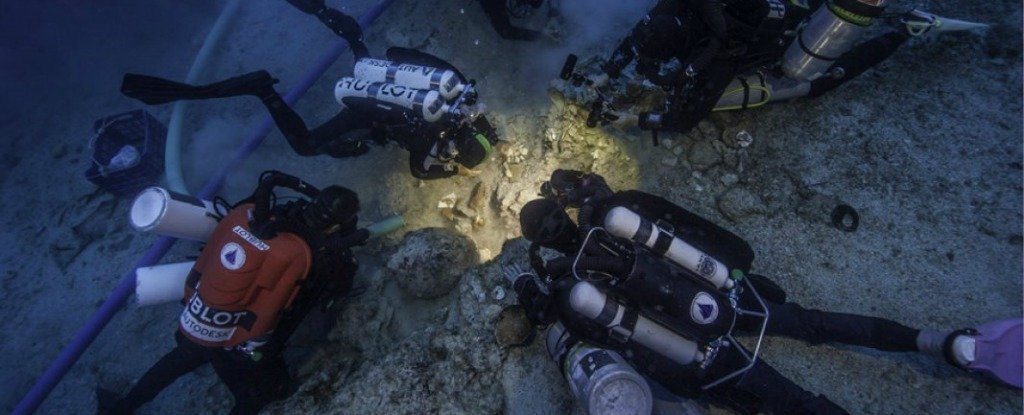The mysterious Antikythera shipwreck
- On 21/09/2016
- In Underwater Archeology
- 0 comments

By Josh Hrala - Science Alert
An international team of archaeologists excavating the famous Antikythera shipwreck in the Aegean Sea off the coast of Greece have found the remains of a human skeleton among the 2,100-year-old wreckage.
If they can extract DNA from the bones, it'll help us understand more about the passengers on board the ship when it sank around 65 BC – and could provide vital insight into the mysterious Antikythera Mechanism it was carrying, better known as the world’s first computer.
"Archaeologists study the human past through the objects our ancestors created," said team member Brendan Foley, from the Woods Hole Oceanographic Institution (WHOI) in the US.
"With the Antikythera Shipwreck, we can now connect directly with this person who sailed and died aboard the Antikythera ship."
In case you’re unfamiliar, the Antikythera shipwreck – which was originally discovered by sponge divers in 1900 – is the largest ancient shipwreck ever found.
During the first excavation by the sponge divers, they managed to pull up a series of marble statues and thousands of other sea-battered artefacts.
Among the random assortment of things was the Antikythera Mechanism, a clockwork device that might have been used to predict astronomical events and is widely referred to as the world’s first analogue computer.
Add a comment